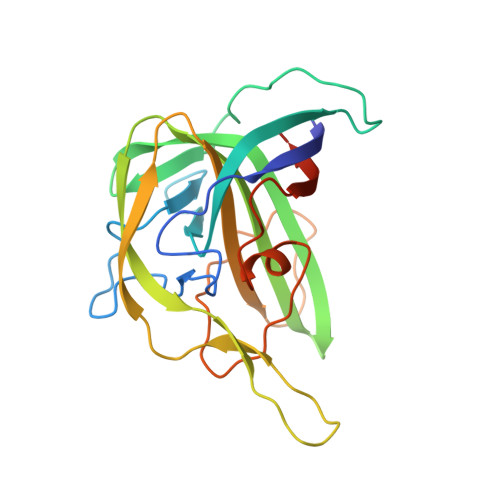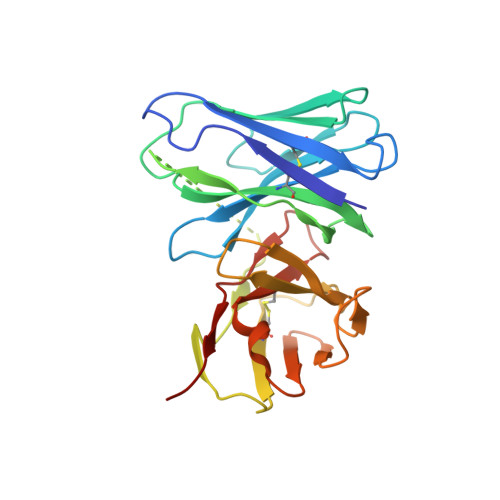Structure of a Human Astrovirus Capsid-Antibody Complex and Mechanistic Insights into Virus Neutralization.
Bogdanoff, W.A., Campos, J., Perez, E.I., Yin, L., Alexander, D.L., DuBois, R.M.(2017) J Virol 91
- PubMed: 27807234
- DOI: https://doi.org/10.1128/JVI.01859-16
- Primary Citation of Related Structures:
5KOU, 5KOV - PubMed Abstract:
Human astroviruses (HAstVs) are a leading cause of viral diarrhea in young children, the immunocompromised, and the elderly. There are no vaccines or antiviral therapies against HAstV disease. Several lines of evidence point to the presence of protective antibodies in healthy adults as a mechanism governing protection against reinfection by HAstV. However, development of anti-HAstV therapies is hampered by the gap in knowledge of protective antibody epitopes on the HAstV capsid surface. Here, we report the structure of the HAstV capsid spike domain bound to the neutralizing monoclonal antibody PL-2. The antibody uses all six complementarity-determining regions to bind to a quaternary epitope on each side of the dimeric capsid spike. We provide evidence that the HAstV capsid spike is a receptor-binding domain and that the antibody neutralizes HAstV by blocking virus attachment to cells. We identify patches of conserved amino acids that overlap the antibody epitope and may comprise a receptor-binding site. Our studies provide a foundation for the development of therapies to prevent and treat HAstV diarrheal disease.
Organizational Affiliation:
Department of Biomolecular Engineering, University of California Santa Cruz, Santa Cruz, California, USA.
















